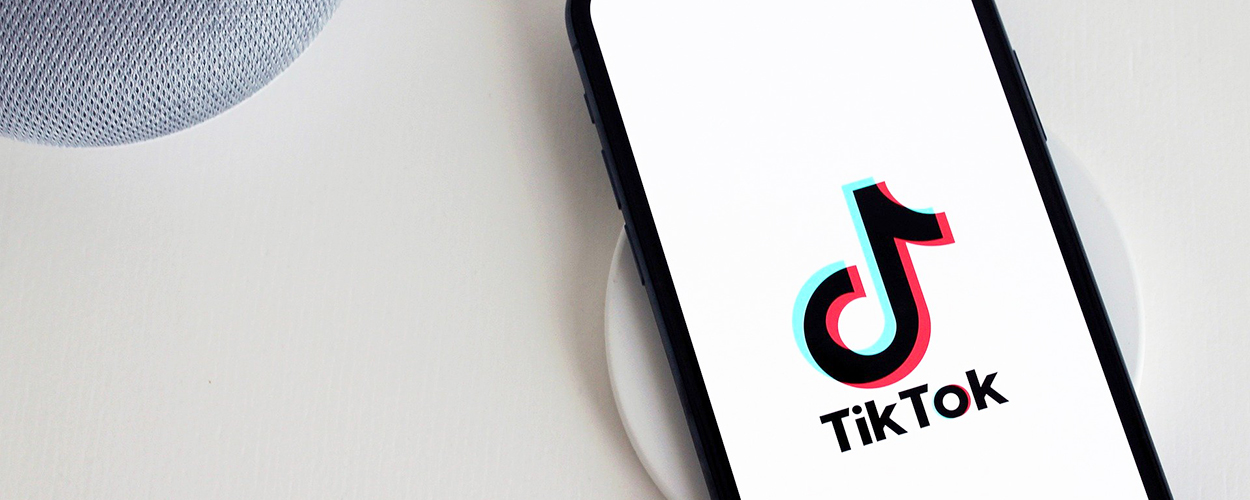This website uses cookies so that we can provide you with the best user experience possible. Cookie information is stored in your browser and performs functions such as recognising you when you return to our website and helping our team to understand which sections of the website you find most interesting and useful.
Business News Digital Legal Top Stories
Donald Trump’s TikTok ban is unconstitutional, says TikTok
By Chris Cooke | Published on Tuesday 25 August 2020

Donald Trump’s bid to ban TikTok in the US is unconstitutional, an overreach of the President’s legal powers and a blatant abuse of laws designed to stop terrorism and the illegal arms trade in order to score some political points as part of an election campaign. Or at least that’s what TikTok reckons.
As expected, TikTok owner Bytedance began legal proceedings yesterday against Donald Trump and the US federal government over the executive orders issued earlier this month that forbid Americans from using the video-sharing app from 15 Sep and order the China-based company to sell all of its American assets by 12 Nov.
The lawsuit, filed with the federal courts in California, disputes the allegations made by Trump, and others, that the Chinese government has access to TikTok’s global audience and user-data. It argues that Bytedance has gone out of its way to ensure that the global TikTok platform is separate to its Chinese counterpart Douyin, with all user-data stored on servers in the US and Singapore.
However, the key arguments in the lawsuit relate not to TikTok data. Instead they focus on the Trump government’s conduct – in relation to both the executive orders and its alleged interference in efforts to sell the TikTok US business to American companies – which, Bytedance argues, are illegal and unconstitutional.
The US government was well aware of all the measures Bytedance has taken to protect user data, the lawsuit argues, because of a recent national security review of TikTok’s acquisition of another China-based company with a popular video-sharing app. That being Musical.ly, of course. It was the merger of TikTok and Musical.ly that made the combined app such a global phenomenon.
“As part of that review”, the lawsuit states, “plaintiffs provided voluminous documentation to the US government documenting TikTok’s security practices and made commitments that were more than sufficient to address any conceivable US government privacy or national security concerns – even going so far as to be prepared to spin-out the US TikTok business to trusted American investors”.
“Ignoring these demonstrable facts and commitments”, the lawsuit goes on, “President Trump’s executive order authorises the Secretary Of Commerce to prohibit ‘any transaction’ with ByteDance and its subsidiaries, including banning TikTok from operating in the United States”.
That order ignored the aforementioned security review, it adds. “Instead, the order was issued abruptly after the President had proclaimed in a campaign-style news conference that TikTok Inc had ‘no rights’ and that he would ban TikTok if plaintiffs did not pay money to the US Treasury to secure the US government’s approval for any sale”.
Trump’s executive order uses powers granted to the US President under the International Emergency Economic Powers Act. But, Bytedance’s lawsuit argues, that Act doesn’t actually provide the President with the power to ban something like TikTok.
“IEEPA vests the President with significant power to prohibit certain transactions to protect US national security”, it notes. “Past presidents have used this power responsibly to protect the country from genuine threats from abroad, including terrorism and the proliferation of weapons of mass destruction”.
But, “through this executive order … President Trump seeks to use IEEPA against TikTok Inc, a US company – headquartered in Los Angeles with hundreds of employees across the United States – to destroy an online community where millions of Americans have come together to express themselves, share video content, and make connections with each other”.
“The order imposes these restrictions despite express limitations in the IEEPA barring executive actions from restricting personal communications or the transmission of informational materials”, the lawsuit then states.
As well as mis-using the IEEPA, Trump’s conduct has also violates the first and fifth amendments of the US constitution, Bytedance argues. And, with all that in mind, the company asks the court to issue “a declaratory judgment and order invalidating and enjoining the executive order and any implementing regulations issued by the Department Of Commerce”.
So that’s all kinds of fun. We await to see how the Don responds. Maybe via a Triller video.





